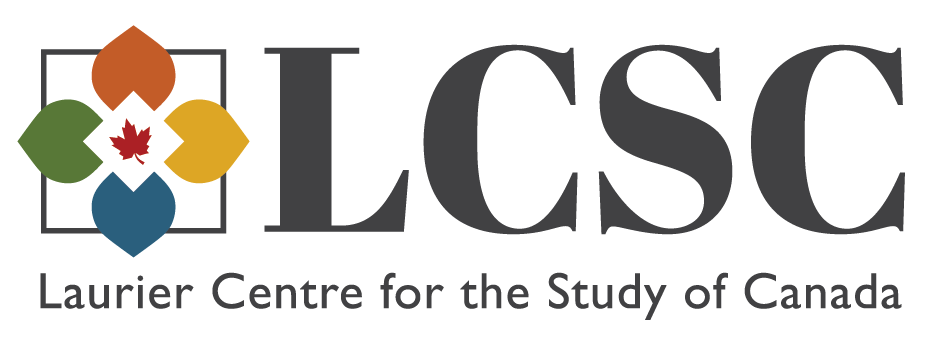We use cookies on this site to enhance your experience.
By selecting “Accept” and continuing to use this website, you consent to the use of cookies.
Search for academic programs, residence, tours and events and more.
June 28, 2022
Print | PDFUpdated on June 27, 2023
As Canada Day approaches, Canadians continue to grapple with the complex history of their nation. Scholars at the Laurier Centre for the Study of Canada (LCSC) are bringing together students, local community organizations and international peers to help examine and understand the Canadian experience.
In this Q&A, LCSC Director Kevin Spooner shares how the centre is enabling researchers to dig deeper into Canada’s past and present.
When we created our mandate, we wanted to be clear that the point of the centre is not to be sort of 'rah! rah!' nationalistic. The point is for us to be thoughtful and critical and to try to understand what Canada means from many different perspectives. In my own teaching, my key message is that there is never one definition of Canada.
It's important to me as an academic to recognize that as a white settler society, Canada has a past that needs to be understood in its colonial context. If we have any hope of achieving reconciliation, an important part of that is understanding Canada’s truths, and some of those truths are very troubling. We want to have a centre that makes room for folks who might have very critical perspectives on what Canada means and those who have more positive interpretations of the Canadian experience. We want to make sure that all feel welcome to work in our space.

In addition to the War and Society cluster, which is still doing really neat and important research on Canadian military history started by the centre's predecessor, the Laurier Centre for Military Strategic and Disarmament Studies, we are now doing work in several other areas. Our Communities research cluster looks at ways the centre can foster collaboration with community partners and how we even imagine what communities are in a Canadian context. Publics and Social Justice is another cluster, which focuses on historical and contemporary inequities. And then, finally, Policy Connections for Canada, which looks at both domestic and foreign policy.
There are more than 30 Laurier faculty associated with our centre and they come from more than a dozen academic departments. It’s a very interdisciplinary group of scholars who all have research interests related to Canada, along with several graduate students and postdoctoral researchers. Beyond Laurier, several scholars from other institutions have joined the centre as external fellows.
Since the centre launched in December 2021, we’ve been focused on developing a mandate, new programming and renovating the centre’s physical space at 232 King Street so that it is more welcoming and conducive to collaborative research for all faculty and students. This coming year, an important goal for me as director is to foster important discussions at the centre about what reconciliation means to us. What can our research centre do to advance the goal of reconciliation?
Our executive committee will be identifying how the centre can, in very concrete ways, advance both the Truth and Reconciliation Commission’s Calls to Action and Laurier’s recently released Indigenous Strategic Plan. Advancing truth by supporting research that acknowledges the historic legacies and contemporary consequences of colonialism will undoubtedly be an integral part of this agenda.
“We want to have a research centre that makes room for folks who might have very critical perspectives on what Canada means and those who have more positive interpretations of the Canadian experience. We want to make sure that all feel welcome to work in our space.”
Sara Matthews is leading a project related to a nuclear fallout bunker in Kitchener in the Freeport neighborhood. We’re working with folks from local archives, museums and heritage organizations to think about the meaning of civil defense and commemorating Cold War infrastructure. Sara connected our Waterloo partners with people from the Diefenbunker Museum in Ottawa and we met last August for a workshop that brought together architects, artists, academics and community heritage experts. We literally spent two days in a bunker thinking and collaborating about research related to bunkers! Plans are currently in development for a digital exhibition related to this research.
This is a model I see being effective as we move forward: the centre uses its academic leverage to build connections and secure funding for community projects in Waterloo, Kitchener, Brantford and Milton.
There is significant academic interest in Canada abroad. In my experience – particularly working with my colleagues at the National Autonomous University of Mexico, where we are developing a memorandum of understanding for continued collaboration – it’s very insightful to look at a nation from beyond the nation. We can learn a lot from how others see us and perceive what’s happening in Canada.
Lucy Luccisano and I secured funding from the U.S. State Department to bring American students to Laurier for an event about understanding Canada from Canadian and American perspectives. That's expected to happen during the upcoming fall term. And Debora Van Nijnatten, who is part of the Policy Connections for Canada cluster, recently hosted a conference supported by LCSC on Canada and the Green Transition, engaging academics throughout Canada and the U.S. about environmental policy in the North American context.
I'm hoping that, for many Canadians, Canada Day is evolving to function not just as a celebratory day, but as a time to be deeply thoughtful about the sometimes difficult and troubling aspects of our shared past, knowing that the implications of that past continue to the present. It’s a moment to take stock and for people to know Canada in all its complex and contested ways.